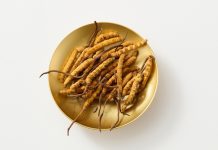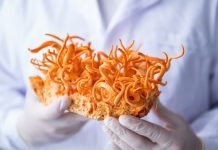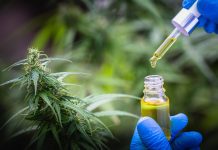
Dr Dani Gordon, double board-certified medical doctor speaks to Health Europa Quarterly about her journey in the medical cannabis industry and how it fits into integrative medicine.
Dr Dani Gordon is a double board-certified medical doctor, working with integrative medicine, as well as a wellness expert and leading expert in clinical cannabis/cannabinoid medicine after treating 2500+ patients in Canada in a referral complex chronic disease practice where she specialised in neurological disorders, chronic pain and mental health conditions.
She speaks internationally on cannabinoid medicine and in mid-2018 moved to London to train the UK’s first cannabis medicine specialist physicians, developing a leading online cannabis medicine physician training programme, helping to set up the UK’s first cannabis medicine clinics and become a founding member of the UK Medical Cannabis Clinicians Society (MCCS), delivering the MCCS guidelines to 10 Downing Street.
Gordon is an American Board Specialist in Integrative Medicine, the newest American sub-specialty of mainstream medicine, focussed on the intersection of conventional and natural evidence-based medicine and therapeutics and she has studied herbal medicine and meditation extensively throughout India and south east Asia with traditional teachers, mind-body medicine at Harvard, neurofeedback brain training and EEG brain imaging techniques with leaders in the field in North America.
Here, she speaks to Health Europa Quarterly about her extensive background in cannabis medicine, patient experience, and the representation of women in the rapidly evolving industry.
Can you introduce us to your work and history with medical cannabis?
I am medical doctor and I’m trained in both integrative medicine, which is natural evidence-based medicine and a recognised speciality. I am also trained in family medicine in Canada, and I specialise specifically in herbal medicine, cannabinoid medicine as part of my integrative medicine practice.
I have been practising integrative medicine for the last decade in Canada and that is mostly what I do in my clinical practice. Around four years ago, I started experimenting with medical cannabis and I have been running a complex chronic disease clinic with a focus on medical cannabis for the last four years in Canada; at this point I have treated thousands of patients using medical cannabis and CBD.
I have also trained medical students, physicians and allied health care providers on how to use cannabis medicine. I am a writer, and I speak worldwide on cannabis medicine and other natural evidence-based medicine topics and integrative medicine. Last year I relocated back to the UK – where I’m also a citizen – to get involved on this side of the pond.
Since that time, I’ve been involved in quite a few major projects here, I advise on some of the high profile child epilepsy cases, and I’m the vice chair of the Medical Cannabis Clinicians Society. I advise companies and I have overseen training the first group of UK specialist doctors in cannabis medicine along with overseeing the curriculum for the Academy of Medical Cannabis, which is the main body established to educate physicians and researchers on medical cannabis.
Can you tell us about integrative medicine, evidence based natural medicine, and how this led to your involvement in the field of medical cannabis?
Integrative medicine is a subspecialty which started out in the States. I already had my postdoctoral fellowship and you already need to be a doctor to take the fellowship programme. It’s a two-year fellowship which I completed in 2012 in the US, and the reason I decided to do it is because I was practising as a holistic medical doctor in Canada. I was already a conventionally trained medical doctor with the qualifications I had, but I wanted to add to my practice natural things such as herbal medicine, mindfulness-based stress reduction techniques and mind- body techniques for the benefit of my chronic disease patients.
I went to the states and completed this training in 2012, because there was no postdoctoral level training in natural medicine and I really wanted to have the most bona fide qualification. Since 2012, it has now become a fully recognised speciality in medicine in the US. Initially I wasn’t interested in integrative medicine when I started my practice in 2009 as a family doctor helping people with chronic disease was my main interest. I realised that just using pharmaceutical drugs alone for complex chronic diseases, were not really ‘cutting the mustard’ so to speak. It just wasn’t really working very well for a lot of my patients with anxiety, stress related disorders, mental health conditions, fibromyalgia, chronic fatigue syndrome, chronic pain and sleeping problems. Pharmaceutical drugs were just not helping enough on their own.
I became interested in cannabis specifically in 2015. At that time, I had been practising with herbal medicines and conventional drugs for almost half a decade. A lot of my patients started to tell me about their experiences with using cannabis therapeutically because I practised herbal medicine as well as the conventional kind.
I was really interested in the things they were doing, for example some of my patients were juicing cannabis in its raw form and saying that it didn’t make them feel high. They explained that it was really a health supplement that their parents generation had been using it in West coast Canada where a lot of people grow cannabis on their land. That got me really interested in why they were juicing it and not getting high and what was what was happening with this plant; as a herbalist I became very intrigued.
I also had a few patients who were at the end of their life with terrible cancers and they told me how they were taking homemade cannabis tinctures to help reduce their morphine needs so that they could be more aware and alert. It allowed them to manage their pain, experience better quality of life and spend more time with their families in their final days.
I started to investigate it from there to find out how I could introduce it into my practice, so people wouldn’t need to experiment with it alone and in isolation. I sought out additional training in cannabis medicine, and just found a few mentors but back in 2015, there really wasn’t that much awareness. I started opening my door to cannabis medicine being included in my practice through the Health Canada legal system and I just started learning hand in hand with my patients. I was reading all the latest research and working with the plant just as I did with all my other herbal medicine practise. I started to see all these incredible changes in my patients so that really spurred me on to continue.
How does the use of medical cannabis go hand in hand with treating conditions such as chronic fatigue, burnout, and mental health conditions such as anxiety and depression?
When I first started out in cannabis medicine, I was actually quite sceptical because I had a lot of ingrained training from medical school that cannabis was an addictive drug that it was going to make people lazy, hurt their brains and make them more tired.
What I found was the patients who were in orphan disease categories with conditions such as fibromyalgia, chronic fatigue syndrome, chronic anxiety and chronic depression, chronic pain were improving when nothing else we had tried previously was really effective. When I started to study the endocannabinoid system, which is the cannabis system we have in our own bodies – It made sense because essentially the cannabis plant regulates our own cannabis system which is involved in processes such as regulating our mood and pain signals.
We [doctors and researchers specialising in cannabis medicine] think that a deficient endocannabinoid system also known as ‘Endocannabinoid Deficiency Syndrome theory’ may play a role in all of these overlapping symptom clusters that are very, very difficult to treat. Conditions such as irritable bowel syndrome, fibromyalgia, chronic daily headaches, chronic migraine, chronic depression and anxiety – all these issues sometimes improve using traditional drugs, but it usually doesn’t provide a good solution with few side effects.
What I started to do with cannabis is adding in different forms of cannabis medicines – primarily the low THC and high CBD strains of the plant – and then selecting different strains of the plant more specifically. I found with my background as a herbalist I was able to really personalise the therapy.
With many of my patients who suffered from chronic mental health conditions, I really wanted to get them practising something called Mindfulness Based Stress Reduction (MBSR) which I went to Harvard to study alongside some of the top researchers in the world. I really believe in it; however, it is not a quick fix. Unfortunately, people with chronic pain and chronic mental health conditions are often so poorly that they can’t summon the mental effort to keep the practise going long enough for it to start working.
Once I got them onto cannabis, even the low THC cannabis which did not make them feel high, I started to get them to use it before their mindfulness or meditation practise. I found that they started to do more mindfulness and from there they started to exercise more because they weren’t fatigued. Many patients started to lose weight and become more social; it was kind of a snowball effect that allowed them to do a lot of other things. It allowed them to engage with a lot of non-drug therapies such as CBT that they couldn’t engage with before because they were too ill.
Based on your experience and what you have seen through the projects that you have been involved in, how effective has medical cannabis been in improving patient experience? Can you share with us any stories of patient experience?
I think it’s been enormously important to the patient experience and I have to say that it has reinvigorated my love of medicine in many ways. It is the kind of medicine that is very well tolerated by most people and helps them with their quality of life so greatly, even though it doesn’t cure their condition.
We don’t know that cannabis can’t cure things and maybe one day we can figure that out, but for now it’s about quality of life. It has changed my patients lives in ways I could never imagine. Nobody I’ve ever prescribed an antidepressant to has ever said to me “this has changed my life,” but daily and weekly in my practice, I get letters from patients and verbal testimonials that starting them on cannabis has saved their marriage, or completely changed the relationship they have with their children because they can engage with their family life again.
I have seen patients who were so debilitated by very advanced arthritis that they couldn’t work or play music anymore and they are able to go back to those things. I had one patient who surprised me with a concert; he hadn’t played in 10 years and he was very depressed because his hands were so painful.
I have seen ranchers who live out in the middle of the countryside in Alberta who couldn’t get on their horse anymore to round up their cattle and when I did a follow up consultation via a video app, they took me with them on a ranch ride for the first time in five years. It had been five years since they’d been on the horse.
I’ve treated young adults with epilepsy who had been told that they would never be independent and that they were going to be in a care home for the rest of their lives, and seen them be able to go to a part time job and get an animal to keep them company – these things were not possible before. It changes the whole family’s lives not just the person with epilepsy. As far as a single thing I can give someone, although it’s not a cure it has been the single most powerful tool that I have found so far since going from a Western medicine doctor to a herbal medicine doctor.
Being a woman in the evolving field of medical cannabis, what kind of barriers and challenges (if any) did you experience, and did these influence the development of the Medical Cannabis Clinicians Society (MCCS)?
One of the things that I get very excited about is changing the perception of cannabis because I think the old perception of cannabis was this kind of ‘stoner’ culture. On the recreational side of cannabis, which is very different to the medical side. It’s not a very wholesome image.
The images that were portrayed of women were often women in bikinis smoking cannabis which are not necessarily positive images of women in general and definitely not the image of cannabis the medicine as I practise it. I feel very lucky to be involved in kind of seeing the transformation of the image of the plant because a hundred years ago, it was a perfectly respectable botanical medicine and it’s coming full circle back to that.
I feel that women have played a large role in that to be honest, and really introducing a balanced movement into the modern era. It isn’t just me, there is Hannah’s Deacon, Alfie’s mother and Charlie Caldwell – these are the women who have had kids with epilepsy and have had to fight for access to the treatment. Carly Barton is a good friend of mine and a patient advocate. I have needed and developed a network of women and through social media many of them have become my friends. I think it has been a powerful tool for connecting and empowering women.
One thing that you do find when you enter the business side of the cannabis world is a lot of the people may have come from a traditionally male dominated industry. Often, when I go to give a talk, I will be one of the only women there, but I do feel that is already changing. It is certainly the case that as with many male dominated, corporate professions, women are generally underrepresented which is something needs to be taken seriously; we might potentially have to work harder than men.
Dr Dani Gordon
Integrative Medicine Specialist
drdanigordon.com
Please note, this article appeared in issue 11 of Health Europa Quarterly, which is available to read now.








I’m printing this to give to my GP. We could do with an integtrated medical Doctor here in Beverley, East Riding of Yorkshire.
Having had my gut ruined by NSAIDS from the age of 40, (now 73), I’m sure I’m not the only one who can’t tollerate pharmaceutical From a relatively young age. Now, I self medicate with natural medicine. It cost’s but I’m far better for it.